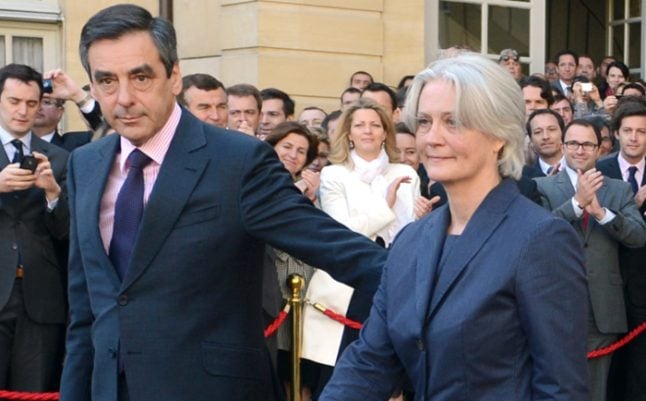The reform was announced by François Bayrou (see photo below), the man recently named by Emmanuel Macron as France's Justice Minister. He said the government's aim was to restore faith in the country's politicians.
Bayrou's much-hyped bill includes a standout measure that would bar MPs from hiring family members as their parliamentary assistants or indeed in any other roles.
That means sons, daughters, parents or indeed husbands and wives.

The move comes after January's revelations over the alleged fake parliamentary job that defeated presidential candidate François Fillon gave his wife Penelope, that led to him being charged by investigators.
The scandal known as “Penelope gate” was credited with Fillon's humiliating performance in the presidential election when he became the first right wing candidate not to make the second round runoff vote.
Among the other proposals announced by Bayrou was a plan to bar individuals from seeking elected positions for 10 years if they have been convicted of any crime, either serious or minor, relating to financial fraud or corruption.
And MPs finances will also be altered. From now expenses will be reimbursed only with the production of valid receipts, rather than previously where MPs were simply given a sum to cover their expenses.
“This isn't about making people think we will fix all the problems about individual morality with a new bill,” said Bayrou. “No one really believes that a bill will make all actors in public life virtuous.
“Institutions are not made to make people virtuous,” Bayrou said. “But knowing that not everyone is, they are made to help avoid instances where human weaknesses contaminate politics”.
Bayrou's bill comes as one of his fellow ministers Richard Ferrand, one of Macron's closest allies, is under increasing pressure to resign over allegations he favoured his wife in a lucrative deal with a public health insurance fund when he headed the company.
Bayrou also wants to end the notion of “one rule for politicians and another rule for everyone else”. He wants to scrap the Court of Justice of the Republic which is a separate jurisdiction for ministers. In future their misdemeanors will be judged by magistrates and not parliamentarians.
Other measures will prevent former presidents from joining France's Constitutional Council as well as limiting elected representatives such as MPs to three terms in the same office.
He also wants to create a “bank of democracy” for the financing of election campaigns.
MPs will also be forced to declare conflicts or interest and be barred from voting on any issues where there is a clash.
Macron has repeatedly vowed to clean up politics after the Fillon fake jobs scandal made corruption among politicians a major election issue.
A poll carried out by the Cevipof research institute before the presidential election found that the mast majority of French people believed their politicians were corrupt.




 Please whitelist us to continue reading.
Please whitelist us to continue reading.